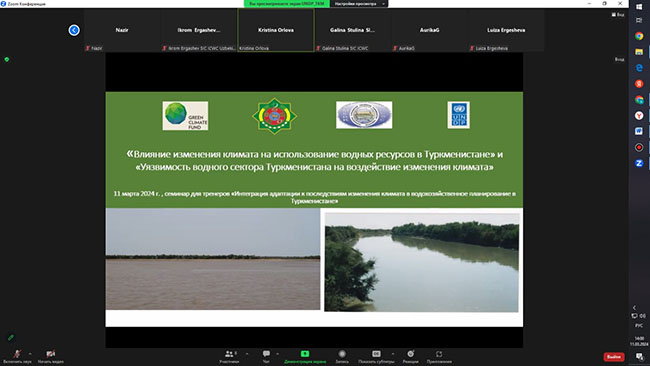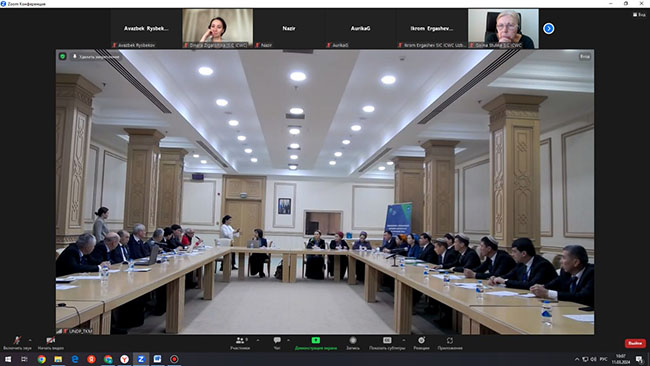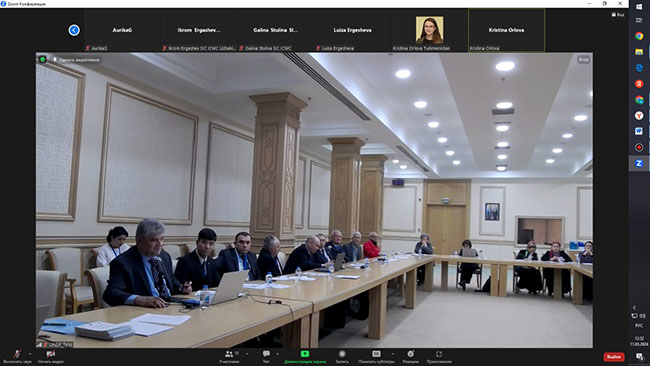No. 8 (452) March 2024
SIC ICWC HOLDS TRAINING ON ADAPTATION TO THE EFFECTS OF CLIMATE CHANGE
Climate change has significant, mainly, negative impacts on water resources in Central Asia. In the future, the negative impacts ranging from increasing frequencies and intensities of floods and droughts, more severe water scarcity, erosion and deposits, reduction of glacial and snow cover to damaging water quality and ecosystems, are expected to aggravate. Moreover, the impact of climate change on water resources will have a cascading effect on human health, economy and society since multiple sectors, such as agriculture, energy and hydropower, health care, tourism and environment, directly depend on water.

Adaptation to climate change effects is the most effective under the high competencies of professional staff. The competencies on adaptation are improved, in particular, through tailored thematic training. It is important to build capacities of trainers, who could continue working on systemic and regular mainstreaming of adaptation techniques and practices across all areas of the public and private sector..
Thus, on 11-12 March 2024, SIC ICWC together with SIC ICSD and with the financial support of UNDP in Turkmenistan held training on adaptation to impacts of climate change and elimination of its negative effects in water planning for professionals/trainers representing different government institutions, academia, and private sector (Union of Industrialists and Entrepreneurs).

The objective of given training workshop was to build capacities of trainers to support the mainstreaming of adaptation techniques and practices and to scale up knowledge of climate change impacts and adaptation options across all areas of the public and private sector.
Experts of SIC ICWC and SIC ICSD presented a new Teaching Guide to the trainers, which was based on lessons from the past training workshops for water professionals and decision makers on adaptive water use planning.

It is expected that potential experts/trainers will improve their competencies on integration of adaptation in water planning and will have practical skills in dissemination of acquired knowledge on the basis of the developed Teaching Guide.
